Pure Hearts/Cuori puri
Open Roads: New Italian Cinema schedule
This year's Lincoln Center Italian series, jointly organized by the Film Sociey of Lincoln Center and Itstituto Cineluce, its 18th edition (and my fifth), is another elegant and varied collection. It includes some homages to Italian cinematic greats, the actress Valentina Cortese, filmmaker Marco Ferreri, and the iconic Taviani brothers, Paolo and his late brother Vittorio.Thursday, May 31, 1:00 pm, Sicilian Ghost Story
Thursday, May 31, 3:30pm, The Place
Thursday, May 31, 6:00pm, Sicilian Ghost Story, Q&A with Fabio Grassadonia & Antonio Piazza
Thursday, May 31, 9:00pm, The Place, Q&A with Paolo Genovese
Friday, June 1, 2:00pm, A Private Affair / Una questione privata
Friday, June 1, 4:00pm, Diva!, Francesco Q&A with Patierno
Friday, June 1, 6:15pm, Fortunata, Q&A with Jasmine Trinca
Friday, June 1, 8:45pm, Pure Hearts / Cuori puri, Q&A with Roberto De Paolis
Saturday, June 2, 1:00pm, Crater / Il cratere, Q&A with Silvia Luzi & Luca Bellino
Saturday, June 2, 3:30pm, Nome di donna, Q&A with Marco Tullio Giordana
Saturday, June 2, 6:00pm, Stories of Love That Cannot Belong to This World / Amori che non sanno stare al mondo, Q&A with Lucia Mascino
Saturday, June 2, 8:30pm, Naples in Veils / Napoli velata, Q&A with Ferzan Ozpetek
Sunday, June 3, 1:00pm, Equilibrium / L'equilibrio, V Q&A with Vincenzo Marra
Sunday, June 3, 3:30pm, Boys Cry / La terra dell'abbastanza, Q&A with Damiano & Fabio D'Innocenzo
Sunday, June 3, 8:30pm, Look Up / Guarda in alto
Sunday, June 3, 6:00pm, Beautiful Things , Q&A with Giorgio Ferrero
Monday, June 4, 2:00pm, Lucky / Fortunata
Monday, June 4, 4:15pm, Crater / Il cratere
Monday, June 4, 6:30pm, A Private Affair / Una questione privata
Monday, June 4, 8:45pm, The Night of the Shooting Stars / La Notte di San Lorenzo
Tuesday, June 5, 2:30pm, Boys Cry / La terra dell'abbastanza
Tuesday, June 5, 4:30pm, Nome di donna
Tuesday, June 5, 6:30pm, Dangerous but Necessary / La lucida follia di Marco Ferreri
Tuesday, June 5, 8:45pm, The Ape Woman / La donna scimmia
Wednesday, June 6, 2:00pm, Pure Hearts / Cuori puri
Wednesday, June 6, 4:30pm, Equilibrium / L'equilibrio
Wednesday, June 6, 6:30pm, Stories of Love That Cannot Belong to This World / Amori che non sanno stare al mondo
Wednesday, June 6, 8:30pm, Diva!
Here are my preview-summaries. I expect to see most of the films and will report on them in more detail later. Already I have been devastated in advance by Boys Cry, mesmerized and turned on by Naples in Veils, horrified and then reassured by the #Me Too-Italian style courtroom drama Nome di Donna, and puzzled and thought-provoked by The Place. There will also be films by Marco Ferreri and the Taviani brothers.
BEAUTIFUL THINGS by Giorgio Ferrero
The title, I assure you, is ironic. This is a film about consumerism. (Venice 2017.) A rather high-toned and intentionally off-putting documentary composed in four parts, with good music and images. It focuses on four men in different worlds and connects them abstractly.

BOYS CRY by Damiano D'Innocenzo, Fabio D'Innocenzo
Twin brothers wrote and directed this film about two best friends still in high school who get drawn into the Italian underground by accident. A "muscular first feature," Boyd van Hoeij said, "A knockout." Well received at the Berlinale, a post-Gomorrah piece on what Jay Weissberg thought an overdone subject of amoral youths. Both have a point. It's stylishly shot, fresh, beautifully acted. These young Italian toughs' criminal lives fill Hobbes' definition: "solitary, poor, nasty, brutish, and short."
CRATER by Silvia Luzi, Luca Bellino
About a fairgrounds huckster who grooms his daughter to become a pop diva. Won the Special Jury Prize at Tokyo 2017. By former documentarians and based on fact.
DIVA! by Francesco Patierno
An inventive bio-doc about Italian star Valentina Cortese, Oscar-nominated for her turn in Truffaut's Day for Night, has different actresses play segments of her life, as in Todd Haynes' Bob Dylan film, I'm Not There. Van Hoeij (again) calls it "inventive."
EQUILIBRIUM by Vincenzo Marra
The director's fourth feature follows a priest who returns to his native Campania and gets into a conflict with the Camorra over their waste exploitation, premiered at Venice in its "Days" series. Another documentarian driven to fiction. Shot modestly with non-actors like his successful Land Wind (2004).
FORTUNATA by Sergio Castellitto
A working class hairdresser plans to open her own hair salon, but hooking up with her kid's shrink distracts her. Castellitto (in Muccino's The Last Kiss, Rivette's Va Savoir and Nettlebeck's Mostly Martha, all in 2001) is best known as an adept and prolific actor, a consummate pro. This is his seventh film as director, a field of action where colorful melos like the hyperventilating medical drama Don't Move/Non ti muovere are what often tempt him.
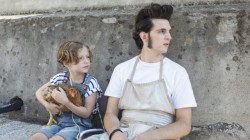
LOOK UP by Fulvio Risuleo
A bizarre trip across the rooftops of Rome. "Only Fulvio Risuleo could make such a bizarre and original movie like Look Up and only Giacomo Ferrara could interpret its leading role". Rolling Stone
MARCO FERRERI: DANGEROUS BUT NECESSARY by Anselma Dell'Olio
Documentary about an important but intentionally low-profile Italian director.
NAPLES IN VEILS/NAPOLI VELATA by Ferzan Ozpetek
At once an immersion in Neopolitan arts and culture and a mystery-shrouded thriller-romance. Enjoyably sensuous and beautiful, with surprisingly vivid sex scenes, lots of atmosphere, a little bit inconclusive and, no doubt intentionally, apolitical.
NOME DI DONNA by Marco Tullio Giordana
Not at all apolitical, this unexpectedly timely sexual harassment drama. The director is known internationally for his involving 2003 generational saga, The Best of Youth. In this one, star Cristiana Capotondi gives a rich performance. A slow-burning courtroom drama where the male abusers, slick and slimy, get theirs in the end of a long, painstaking sequence of events meticulously set out by the director in a style both low-keyed and grand.
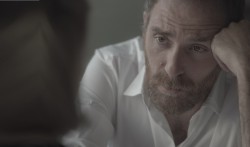
THE PLACE by Paolo Genovese
Davide di Donatello-nominated film about a sad-sack mystery man who grants wishes to eleven strangers, in return for carrying out an often extreme and criminal task. Closely based on Christopher Kubasik's US FX cable TV series "The Booth at the End." Genovese's Italian dialogue is simple and natural. . His 2014 Blame Freud was in Italian series but I missed it. This one has stars like Alba Rohrwacher, Silvio Muccino, Rocco Papaleo, and the hot young actor Alessandro Borghi, who also has key roles in Fortunata and Naples in Veils - everybody wants him!
PURE HEARTS/CUORI PURI by Roberto De Paolis
This was shown at Cannes 2017 Directors' Fortnight, about a teenage girl in Rome who takes a vow of chastity, then spots a working-class boy eight years older who catches her eye. Touches on themes of class difference and Christian fundamentalism.
RAINBOW - A PRIVATE AFFAIR by Paolo Taviani
Based on Beppe Fenoglio’s 1963 novel set during Italy’s mid-1940's civil war when partisans and fascists were fighting, but this arouses mixed reactions. Is it only a "bland literary adaptation" (according to Variety's Jay Weissberg)- or "a quiet classic," as Deborah Young says in Hollywood Reporter? Perhaps somewhere in between.
SICILIAN GHOST STORY by Antonio Piazza, Fabio Grassadonia
The Cannes 2017 Critics Week opener, based on a true story of the Mafia kidnapping of a youth to silence his father, with touches of Romeo and Juliet and the Brothers Grimm. This sounds like a winner. TRAILER.
STORIES OF LOVE THAT CANNOT BELONG TO THIS WORLD by Francesca Comencini
I reviewed her TV documentary In the Factory/In fabbrica in the 2008 Open Roads. This is something quite different, an adult romantic comedy, based on her own novel, about an academic couple who have to reassess after seven years together. And we will have to reassess Francesca Comencini.




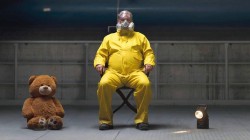
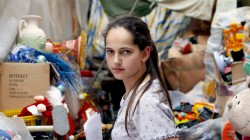

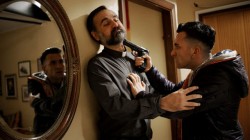
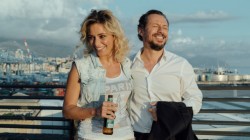

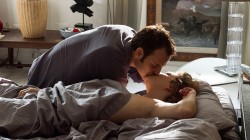


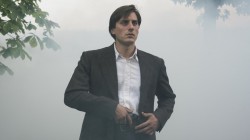
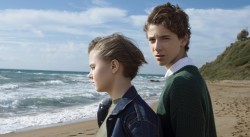


 Reply With Quote
Reply With Quote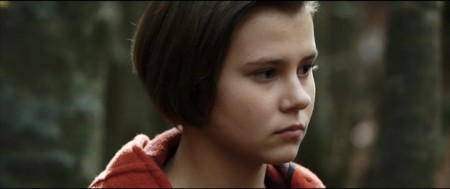
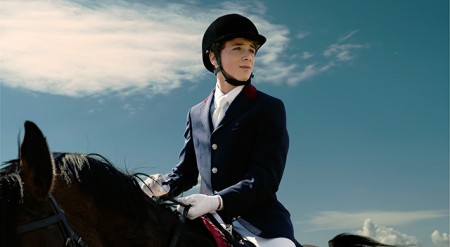
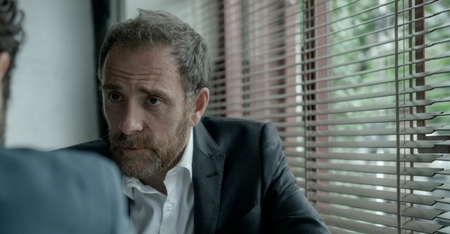
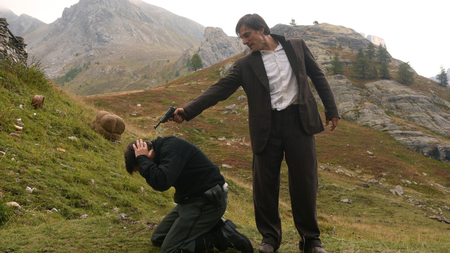
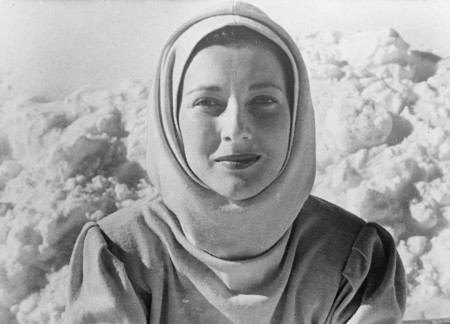
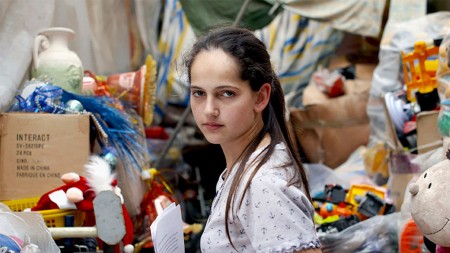
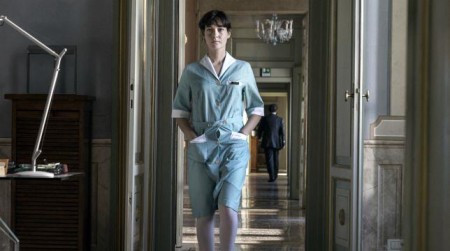

Bookmarks